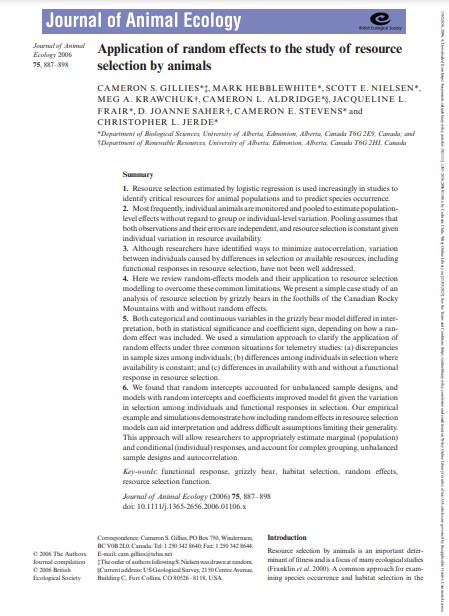Application of Random Effects to the Study of Resource Selection by Animals
Bosque Modelo:
Foothills
Temática:
Desarrollo humano
Tipo de documento:
Artículo científico
Resumen
Resource selection estimated by logistic regression is used increasingly in studies toidentify critical resources for animal populations and to predict species occurrence.2.Most frequently, individual animals are monitored and pooled to estimate population-level effects without regard to group or individual-level variation. Pooling assumes thatboth observations and their errors are independent, and resource selection is constant givenindividual variation in resource availability.3.Although researchers have identified ways to minimize autocorrelation, variationbetween individuals caused by differences in selection or available resources, includingfunctional responses in resource selection, have not been well addressed.4.Here we review random-effects models and their application to resource selectionmodelling to overcome these common limitations. We present a simple case study of ananalysis of resource selection by grizzly bears in the foothills of the Canadian RockyMountains with and without random effects
Información Bibliográfica
Autor:
Gillies, CS, M Hebblewhite, Se Nielsen, MA Krawchuk, CL Aldridge, JL Frair, DJ Saher, CE Stevens and CL Jerde.
Revista:
Journal of Animal Ecology
Año:
2006
N°:
-
País :
Canadá
Páginas:
887 - 898
Volumen:
75
Idioma:
Ingles
Palabras claves
unctional response, grizzly bear, habitat selection, random effects, resource selection function





